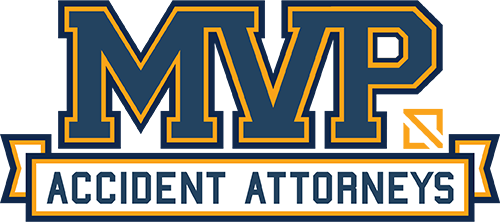
California accident reporting requirements
Steps to reporting a car accident in California
Even though car accidents are relatively common, most of us don’t expect to be in one, so we’re often unsure what steps to take after a crash. California law requires most car accidents to be reported to the Department of Motor Vehicles (DMV), and it’s recommended that y
ou report it to your car insurance company as well.
This page was created to help you navigate the process so you can feel confident and be fully protected under California laws.
Should you call the police after an accident in California?
If you're involved in a car accident, the 1st thing you should do is find out if anyone is injured and call 911 if necessary. If no one is hurt and there's only minor damage to your car, you may wonder whether it's worth calling the police.
While many people suggest calling the police after every accident, it's not always necessary. If there are no injuries and your car sustained minimal damage, you can exchange information with the other driver and report the accident to the police later.
However, keep in mind that injuries often don’t surface for days, weeks or even months after an accident, so it’s often wise to get the police involved even if you think you’re not injured. That way, the details of the accident can be officially documented, which is especially important if the other driver was at fault.
When are you required to file a car accident report in California?
In the state of California, you’re required by law to report any traffic collision to the DMV that results in death, bodily injury or property damage exceeding $1,000 within 10 days of the accident, or you could lose your driver’s license.
In accidents involving injury or death, you must take reasonable steps to notify the police or the California Highway Patrol (CHP) of the incident, as long as you’re physically able to do so. If you can't contact the police at the scene of the accident, you must go to the nearest police station and make a report within 24 hours of the incident.
It’s also important to report the accident to your insurance company as soon as possible. In fact, many insurance companies require that you report an incident within 24 hours. If you are filing a claim with another driver's insurance company after a car accident, you may have up to 90 days to report the claim.
In general, it is better to contact your insurance company and file a report sooner rather than later. The longer you wait to file an accident report, the more difficult it may be for your insurance company to gather evidence about who was at fault for the accident.
Where can you file a car accident report in California?
Online
You can file a California traffic accident report on the DMV website by filling out an SR-1 form. You'll need to enter your driver's license number, the last four digits of your vehicle identification number (VIN) and the date that you filed the police report. You'll also need to provide information about how the accident happened and whether any other drivers were involved.
If you're filing an SR-1 form online, you must do so within 10 days of the accident. You can't use the online filing option if you were injured in the accident or if someone was killed in the crash. In these situations, you must file your form by mail or in person at a DMV office.
In-person
You can file a collision report with the local police department or the CHP. In-person reporting is recommended when there are injuries, fatalities or extensive property damage. The police officer will take your statement and gather evidence for the collision report.
Over the phone
You can report an accident by calling your local police station or the CHP. However, make sure you have all the information available before calling. You’ll need to provide:
-
- Your name (and the name of the other driver)
-
- Your address
-
- Your phone number
-
- Your license plate number
-
- Location of the accident (specific directions)
- Day and time the accident occurred
You will also need to provide a description of the damages to both vehicles and any injuries suffered. Make sure you let them know if an ambulance was called or if anyone was taken to the hospital, and inform them of any witnesses who were present during the accident.
Is it against the law to fail to report a California car accident?
When you have an accident, you are required by law to stop and exchange details with the other party. As stated previously, the police must be notified of any accidents that involve death or injury, and the DMV must be notified of any accidents that result in death, bodily injury, or property damage exceeding $1,000.
If you fail to report an accident when it’s required by law, you may face penalties, including fines and suspension of your driving privileges.
When should you contact a car accident attorney?
If you’ve been involved in a motor vehicle accident, it’s vital that you follow all of these steps to ensure that you don’t hurt your chance to receive compensation. It’s also a good idea to consult a personal injury attorney early on in the process to make sure your best interests are protected. Your attorney can help with obtaining witness statements and filing reports and can negotiate with insurance companies to make sure you get the full compensation you deserve.
Be careful about accepting a settlement from the insurance company before you speak with an attorney, especially if you sustained injuries during the crash. Injuries don’t always surface immediately following an accident. So if you accept a settlement and learn later that you have additional injuries that require medical care, you won’t be able to recover further damages and will be stuck paying out of pocket for those medical bills.
If you've been injured in an accident in California or Texas, contact the experienced personal injury attorneys at MVP Accident Attorneys. Our firm specializes in personal injury law, and our attorneys have recovered millions of dollars for our thousands of satisfied clients over the years.
We never charge you a fee unless we win your case, so contact us today for your free, no-obligation consultation to see how we can help you get the compensation you deserve.
Author

Brett Sachs
Brett S. Sachs graduated from Michigan State University College of Law with Cum Laude Honors. While attending Michigan State, Brett was awarded for his service in the Michigan State University College of Law Civil Rights Clinic, where he represented prisoners of the Michigan Department of Corrections from injustices brought upon them. Learn more.
Top-Rated Lawyers

Lizbhett Rodriguez
Jason Acosta

When You’ve Been Injured
Personal Injury Law

